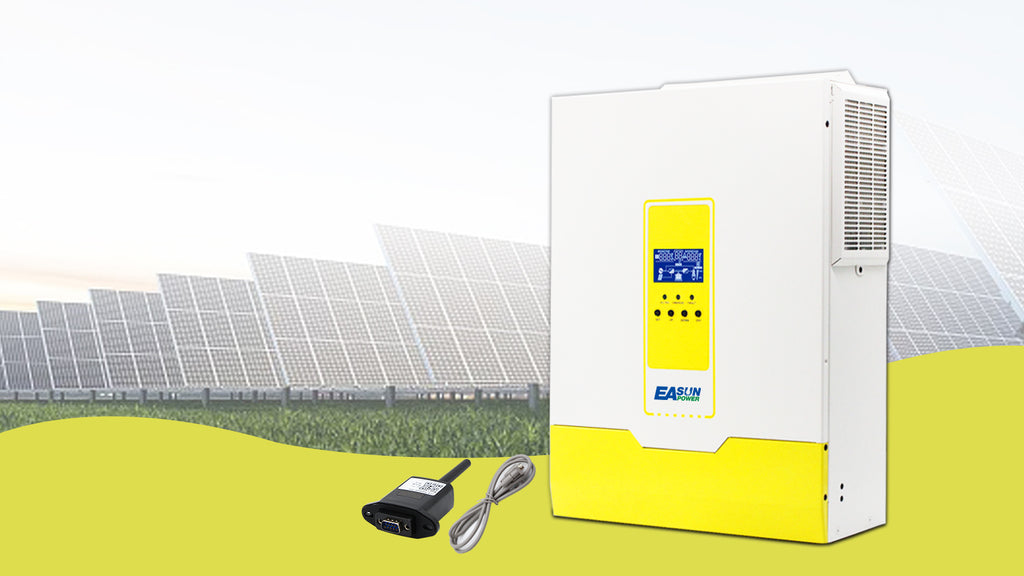
Can a Hybrid Solar Inverter Work Without Solar Panels?
The question may have flashed through your mind many times. We have got you covered. Read on to learn how a hybrid solar inverter works and what it can do for our lives
How Does a Hybrid Solar Inverter Work?
A hybrid solar inverter integrates the functions of a traditional grid-tied inverter with a battery inverter. This dual capability allows it not only to convert direct current (DC) from solar panels into alternating current (AC) for home use but also to store surplus energy in batteries for later use. It intelligently manages power flow between the solar panels, battery storage, home appliances, and the grid, optimizing energy use and reducing dependence on the grid.

Can a Hybrid Solar Inverter Work Without Solar Panels?
Yes. While designed to operate with solar panels, a hybrid inverter can function without them, relying on the grid or batteries as its energy source. For instance, if connected to a battery storage system and the grid, a hybrid inverter can manage the flow of electricity from the grid to charge batteries when electricity rates are low, and then supply power from the batteries to your home or back to the grid when rates are higher. This can help with energy cost management and provide backup power during outages, albeit without the renewable energy aspect that solar panels would bring.
Applications of Hybrid Solar Inverters (Without Solar Panels)
1. Energy Cost Management
In an era of fluctuating electricity prices, managing energy costs is more crucial than ever. Hybrid solar inverters, even without solar panels, play a pivotal role in this aspect. They exploit the variance in time-of-use electricity rates-charging batteries during off-peak hours when electricity is cheaper, and conversely, discharging them to power your home during peak hours when electricity rates skyrocket. This strategic cycling not only reduces your reliance on the grid when it's most costly but also diminishes your overall electricity bills. It's a straightforward yet effective strategy: store cheap energy, use it when it's expensive.
2. Emergency Power Supply
The reliability of power supply is a growing concern, especially in European regions prone to outages. Hybrid inverters address this issue head-on. By maintaining a reservoir of energy in batteries, these devices ensure that, even in the absence of solar input, your home can remain operational during blackouts. Essential appliances such as refrigerators, lights, and medical equipment can continue running uninterrupted, thanks to the inverter drawing on the stored power. This functionality not only provides peace of mind but also highlights the hybrid inverter's role as a crucial component in modern home energy systems.

3. Grid Services
Hybrid inverters contribute to grid stability, an increasingly important aspect as we shift towards renewable energy sources. Without needing solar panels, these inverters can offer grid services such as demand response. This involves reducing energy consumption from the grid during high demand periods and supplying stored energy back to the grid, alleviating pressure during peak times. Such interactions not only support the overall energy infrastructure but also can offer financial incentives to homeowners through programs that reward those who aid in balancing grid demand.
4. Future Solar Integration
For households contemplating a future shift towards solar energy, investing in a hybrid inverter from the outset is a strategic move. This choice doesn't just prepare your home for eventual solar panel installation; it's a commitment to energy efficiency and sustainability. When the time comes to integrate solar panels, the presence of a hybrid inverter simplifies the process, making the transition seamless and cost-effective. It represents a foundational step towards a greener future, allowing for an easy upgrade to solar power without the need for significant system overhauls or replacements.
Final Words
The adaptability of hybrid solar inverters makes them a valuable component of modern energy systems, even without solar panels. Their ability to manage energy storage, provide backup power, and optimize electricity costs offers a glimpse into the future of energy management.

Lascia un commento